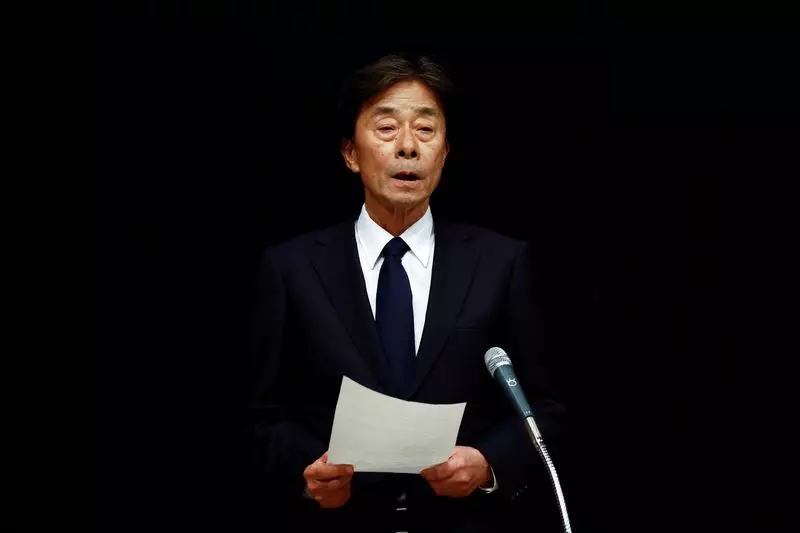In a dramatic turn of events, Japan’s Fuji Media has found itself at the center of a growing scandal that has escalated over allegations of sexual misconduct involving one of the country’s most famous television personalities. The departure of Chairman Shuji Kanoh and the head of the TV unit, Koichi Minato, reflects a significant response to mounting pressure from advertisers and investors for accountability in the wake of these serious claims. The situation has spotlighted systemic issues surrounding the treatment of women in Japan’s entertainment sector, leading to broader discussions about the necessity of reform.
The origin of the scandal traces back to December when Masahiro Nakai, a notable TV host and former member of the legendary boy band SMAP, faced accusations of sexual misconduct published in Japanese tabloids. Reports suggested that Nakai was involved in a premeditated inappropriate encounter with female acquaintances facilitated by an executive from his network. Such assertions point to a troubling pattern where powerful figures in the entertainment industry exploit their status, raising significant questions about consent and corporate responsibility.
Following the allegations, the response from Fuji Media has been telling. Nakai has since published an apology on his fan website, expressing remorse for any inconvenience caused, while announcing his retirement from the public eye. His vague acknowledgment of a settlement regarding another party involved only adds to the uncertainty and confusion surrounding the accusations. Media coverage continues to speculate on the implications of his actions and the silence regarding specific allegations, further complicating the narrative.
Fuji Media’s handling of the situation has been scrutinized heavily. Kanoh admitted during a press conference that the company had received complaints about Nakai’s behavior months prior but failed to act decisively due to privacy concerns. The decision to delay investigations has contributed to the public outcry, as many are questioning the corporate culture that ostensibly prioritized reputation over accountability. As prominent advertisers such as Toyota and Kao have pulled their advertising, Fuji Media is faced with potential long-term financial repercussions that could reshape its future.
The repercussions of this scandal go beyond the immediate fallout within Fuji Media. It echoes the larger societal critiques provoked by similar incidents within Japan’s entertainment landscape. Recent years have seen an uptick in public awareness of sexual violence and misconduct issues, drawing parallels to the #MeToo movement that gained momentum in the United States. In particular, the dissolution of Johnny & Associates following a BBC exposé on its founder’s decades-long abuse further highlights the urgent need for cultural change within the industry.
Nakai’s situation has drawn attention to the entrenched power dynamics that often leave women vulnerable to exploitation. With the recent Academy Award nomination for the Japanese documentary “Black Box Diaries,” which chronicles a woman’s quest for justice after a high-profile journalist’s alleged rape, the discourse around abuse is gaining traction in a country traditionally associated with silence on such matters.
As Fuji Media appoints new leadership, including Kenji Shimizu taking over the TV unit, the company faces an uphill battle in restoring its reputation. The initiation of an independent investigation into the allegations is a potential step towards transparency, but the effectiveness of these efforts remains to be seen. Stakeholders and activist investors are closely watching to see whether swift and meaningful changes will occur in the company’s governance and response to allegations of misconduct.
This scandal could signify a pivotal moment for Japan’s entertainment industry—a wake-up call to rethink its approach to gender dynamics and accountability. The outcome will not only affect the corporate landscape but also serve as a barometer for how society addresses issues of sexual violence and exploitation. As the country navigates these challenges, the hope is that this will pave the way for a safer environment for women in all sectors, particularly within the public eye where such incidents have been historically downplayed.
This evolving situation illustrates how crucial it is for corporations and societies to prioritize ethical standards and recognize the profound impact of power imbalances. With the global spotlight now shining on Japan’s entertainment industry, there is an opportunity for a cultural shift that prioritizes the dignity and rights of every individual, fostering an inclusive and respectful environment for all.

